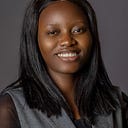Bye to Silos: Media Programming in the Healthcare Sector
The government, media, and community
In an article I previously published, I shared my thoughts on how the synergy between the media and health sector can birth phenomenal growth and salvage Nigeria’s (by extension Africa) ailing health care system.
One of the points I highlighted was health programming. I noted that it is the responsibility of the media to create diverse and creative local health program formats to satisfy the gratification and health needs of the audience. These programs must be educative, instructive, and entertaining!
So as promised, I will briefly share some program styles that media houses especially broadcast stations can adopt as their quota to the health care sector:
Interviews
This is arguably the most popular type of health program format in Nigeria’s broadcast station after the news bulletin. Here, an interviewer usually a broadcaster interviews a medical professional on a topical health issue. While this is very educative, I believe there is more than can be achieved via this format in terms of content.
Since diverse medical discoveries are made regularly, media houses can liaise with medical practitioners, clinical researchers, and health institutes on sharing with the public the implications and significance of these discoveries.
For instance, I want to believe that there were attempts by some clinical researchers in Nigeria regarding diseases such as Lassa fever, COVID-19, etc. The media has a duty to showcase the efforts of these folks, and their breakthroughs, highlight their setbacks and attract government and relevant bodies to aid them where necessary.
Also, local or traditional medicine dealers must not be left behind. Although the traditional medicine sector needs to be regulated, it doesn’t mean their efforts should be relegated. Research into traditional medicine has revealed how potent these medicines are in solving critical medical conditions.
Witness Report
I saw some eyewitness reports from COVID-19 survivors on stations during the peak of the disease in 2020 to reinforce the reality of the disease, which was believed to have some impact on the audience. In fact, some stations also adopt this format for other types of programs especially community reports, political news, etc. So can health programs too!
In this format, verified witnesses or health survivors can share their experiences about a health challenge, medical workers can share their experiences in their line of duty and how their work experiences can be improved, and what government can do differently to transform the health care system. The ideas of other health care stakeholders such as NGOs should also be welcome.
Health Analysis
Every station in Nigeria and abroad has a program that analyzes their country's political landscape. The likes of Politics Today on Channels TV, TVC Breakfast on Television Continental, HardTalk on BBC, New Day on CNN, and the list goes on.
I believe that health programs can also have programs such as this. It can come to inform of in-depth analysis of our health care space to highlight its challenges and the way forward.
Like the Witness report, health care stakeholders are brought to a round table to share their experiences, their thoughts, and actionable ideas that can be put forward to the government for implementation.
Investigative Reporting
This is one format that requires high-quality research and professionalism. This might not be a weekly program considering how time-consuming it can be, it is sure a format that can unearth the challenges and state of affairs of the health sector.
For instance, the origin of COVID-19 is yet to be known (we only have unverified stories), health journalists have the responsibility of conducting an investigation that must be thorough, unbiased, systematic, and original that would trace the origin of the disease, how the government has handled the outbreak since the outbreak, and lessons to be learned for the next time around.
Exploring local remedies
To the best of my knowledge, there are no stand-alone programs that explore the diverse local remedies to health challenges. An explanation for this could be the fact that broadcasters might run out of ideas on what to present weekly. But I really doubt so!
As far as the earth remains and there are diverse types of illnesses, there are ‘herbalists’, and researchers conducting cutting-edge research on local remedies for them. So, the onus lies on the media to showcase their efforts to the public with the backup of relevant regulatory bodies
Storytelling
An author said that ‘storytelling has a remarkable persuasive power to make people learn from crises. Individuals' emotions can be captured and motivated to change their behavior’. I recall that BBC Media Action adopted this strategy to create awareness about HIV/AIDs and other health issues through a radio drama series called ‘Story Story’. According to BBC, ‘drama gave us the chance to cover difficult issues’.
We all love to listen to stories or drama because it could make the most challenging situation or concept relatable and entertaining while driving home the lesson.
Diverse health issues can be transformed into drama series in diverse languages. It’s a sure way to entertain, educate and motivate the audience to make informed health decisions.
As I conclude, the health care space has a lot to gain from the media specifically the broadcast media and it will take the availability of necessary resources from the government and the creativity of media outfits to reap the rewards- which is a thriving and healthy community.
.
